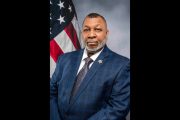Bloomberg’s note on December 23 that Swiss banks were having a hard time complying with the terms of an agreement between the Swiss government and the U.S. Department of Justice hardly caused a ripple of media concern, not to mention outrage. The time for such expressions is long past.
In accordance with the deal cut back in August 2009, the Department of Justice now has the power to force Swiss banks to disgorge any and all information the DOJ demands in its quest to levy taxes, penalties, and interest, and possibly to issue criminal charges against alleged U.S. tax evaders. The DOJ said:
Under the agreement … the Swiss government will … initiate procedures which could result in the turning over of thousands of accounts to the IRS.
The IRS will receive information on accounts of various amounts and types, including bank-only accounts, custody accounts in which securities or other investment assets were held and offshore company nominee accounts through which an individual indirectly held beneficial ownership in the accounts.
How effective has that agreement been in punishing miscreants and collecting back taxes and interest? Says the DOJ:
The division’s current offshore program began in 2008, with the investigation of UBS AG, Switzerland’s largest bank. As a result of that investigation, in February 2009, UBS entered into a deferred prosecution agreement (DPA) and admitted guilt on charges of conspiring to defraud the United States by impeding the IRS, exited the business of providing banking services to U.S. customers with undeclared accounts, and paid $780 million in fines, penalties, interest, and restitution.
As part of the DPA and a 2009 agreement negotiated among the US, UBS, and the Swiss government to settle a civil summons enforcement proceeding brought by the Tax Division, the IRS has received account information about thousands of the most significant tax cheats among the U.S. taxpayers who maintain secret Swiss bank accounts…
[These efforts] have resulted in an unprecedented number of taxpayers — over 38,000 since 2009 — voluntarily disclosing to the IRS their previously hidden foreign accounts and agreeing to pay billions of dollars in back taxes, interest and penalties to the U.S. Treasury.
As a result, these enforcement efforts not only remedy past wrongdoing, but also bring into the system tax revenue from taxpayers who become compliant going forward.
As the Bloomberg article noted, the Swiss banks, long known for their bank secrecy, are now having to go back to accounts, many of which have been closed, to determine who owned them and whether or not those owners would be candidates for IRS review and prosecution. As Swiss Bankers Association (SBA) spokeswoman Sindy Schmiegel complained: “It’s necessary for the banks to do a deep analysis of their clients and the history of those relationships. That’s really expensive … it’s really a painful program.”
Not nearly as expensive as the costs borne by those alleged tax evaders who have already “voluntarily” coughed up more than $5 billion in taxes, penalties and interest, thanks to the agreement. Even more costly is the invasion of Swiss national sovereignty by the DOJ along with the overriding of protections in the Bill of Rights that are being routinely ignored. As the DOJ gleefully notes:
As the Division’s investigations focus on an ever-widening circle of banks and others who would assist U.S. taxpayers in attempting to hide income and assets from the United States, those who would use secret offshore bank accounts are running out of places to hide. The Tax Division is committed to using every tool available in its efforts to identify, investigate, and prosecute these wrongdoers.
For example, a growing number of district and circuit courts are upholding subpoenas to accountholders for foreign financial records over Fifth Amendment objections, based on the requirements under Title 31 that such records be maintained. [Emphasis added.]
The fatal crack in the Swiss banking façade first appeared back in 2007 when a whistleblower, Bradley Birkenfeld, a UBS banker working with high-net-worth U.S. clients, learned that what he was doing was illegal and resigned his position at the bank. He had tried to bring to the attention of the bank’s legal counsel that what he and others were doing was illegal, without success. So he approached the DOJ, the Securities and Exchange Commission (SEC), the IRS, and the Senate Permanent Subcommittee on Investigations with everything he knew about how UBS was illegally operating as a tax haven:
I became the very first Swiss private banker in history to reveal to the outside world the inside secrets behind these illegal practices.
I outlined in great detail how the illegal UBS enterprise was operated, who was directing the enterprise, and how they tried to conceal what there were doing for so long to the U.S. law enforcement authorities.
In the summer of 2007, I voluntarily provided virtually every essential and material fact contained within the now-famous “John Doe” summons to UBS.
I revealed tax evasion on a massive and unprecedented scale.
Once the DOJ and the IRS were done with them, UBS was shattered. A series of Senate hearings severely damaged their credibility, UBS’s entire executive management team was fired, and $200 billion in assets moved elsewhere. Even today the stock price of UBS is down 70 percent from its high in April 2007.
For his efforts Birkenfeld received more than $100 million as a whistleblower award, but also spent nearly three years in jail for not coming totally clean during an investigation of one of his own clients.
While it’s hard to weep for the Swiss banks who now complain about the onerous requirements imposed on them by the U.S. Department of Justice, what the DOJ and its enforcement arm, the IRS, have managed to accomplish boggles the mind. It has erased Swiss sovereignty, eliminated Swiss bank secrecy laws dating back to 1934, abrogated private property and Fifth Amendment rights of thousands of American citizens, and has virtually turned Swiss banks into foreign collection arms for the U.S. government. While tax evasion, when proven in a court of law, is a serious crime, with the help of Birkenfeld the IRS has managed to ride roughshod over decades of Swiss law and custom, resulting in extending IRS power over the single most defiant defender of those rights on the planet.
And the extension of its power is accelerating. Jeff Snyder, an attorney practicing law in Manhattan, wrote:
The IRS’ highly visible targeting of the “establishment” Swiss banking system will likely garner much greater future compliance with these reporting obligations, so that the IRS and [the] US government will likely obtain detailed information about many more foreign accounts from people who have either intentionally hidden these accounts or who just want to “play it safe.”
The DOJ agrees:
These investigations are expanding into other countries. In April 2013 a federal district court authorized the IRS to issue a “John Doe” summons seeking information about U.S taxpayers who may hold undeclared offshore accounts at CIBC FirstCaribbean International Bank (FCIB), a Barbados-based bank with branches across the Caribbean.
The Swiss agreement about which Swiss banks are complaining is just the beginning. Soon the IRS will have its collection tentacles reaching into every corner of the world seeking out those trying to escape the increasing penalties being levied on wealth and its owners.
Photo: AP Images
A graduate of Cornell University and a former investment advisor, Bob is a regular contributor to The New American magazine and blogs frequently at www.LightFromTheRight.com, primarily on economics and politics. He can be reached at [email protected]




